The True Cost of Commission Errors: Why Even Great Organizations Struggle
The Hidden Complexity Behind Every Commission Statement
Commission processing, while seemingly simple on the surface, is a complex and multifaceted operation. The initial perception is that carriers issue statements, you then calculate the appropriate agent payouts, and subsequently, everyone receives their due compensation. However, the reality is that each statement reveals a distinct set of requirements that demands meticulous attention and sophisticated processing systems to be accurate.
At the core of this complexity are several key areas:
- Policy-level verification across multiple systems and timeframes: Each policy requires rigorous verification. This isn’t merely about checking a single record; it involves cross-referencing data across disparate systems, each potentially holding different pieces of the policy’s lifecycle. Furthermore, the timeframe of these policies can vary significantly, adding additional complexity to guarantee accuracy.
- Multiple agents or shared IMOs/BGAs on a single case: Complex policies require complex commission management. Not all cases can follow the same system, and some need expertise to deliver a “one-off” solution. This is particularly true for insurance agents and agencies that specialize in high-net-worth clients and complex offerings.
- Agent hierarchy mapping that can change mid-cycle: The organizational structure of agents, or the “agent hierarchy,” is rarely static. It can undergo changes even within a single commission cycle. Accurately mapping these shifts – promotions, new hires, departures, or reassignments – is crucial for correct commission distribution. A failure to update these hierarchies in real-time can lead to miscalculations and significant reconciliation challenges.
- Bonus schedule calculations with carrier-specific rules and exceptions: Beyond standard commissions, many agents are eligible for various bonuses. These bonus schedules are highly customized and often unique to each carrier, complete with their own set of intricate rules and numerous exceptions. Manually tracking and applying these diverse rules can be incredibly time-consuming and prone to error, especially when dealing with a high volume of transactions.
- Override Sharing: Showing appreciation to your most loyal agents by sharing a portion of your override can require pulling out particular rows on your commissions statements to manually share the money you are receiving from the carriers. This difficulty is compounded when these deals change based on carrier, product type, or line of business.
- Cross-carrier reconciliation for agents writing with multiple companies: It’s common for agents to work with multiple insurance companies, writing policies for various carriers. This necessitates “cross-carrier reconciliation,” a process that involves consolidating and comparing data from all these different sources to get a holistic view of an agent’s performance and earnings. This aggregation is vital for ensuring accurate total payouts and for identifying any discrepancies across carriers.
- Agent Levels vary among carrier Products: Different products and line of businesses will be paid out at different percentages, requiring you to cross-check each against your carrier/IMO grids and agent schedules to ensure accurate reconciliation of expected vs. paid commissions.
The cumulative effect of these challenges transforms what appears to be a straightforward process into a demanding and highly specialized function. Without robust systems and documented processes in place, errors can proliferate, leading to agent dissatisfaction, financial discrepancies, and increased administrative burden.
Why Technology Solutions Fall Short
Technology is often a solution for scaling processes. But, while automation can reduce some manual data entry, new challenges emerge:
The Ambiguity Problem: Software excels at processing clean, consistent data but struggles with exceptions. When a carrier changes statement formatting or an agent’s hierarchy shifts, automated systems often flag these as errors rather than processing them correctly.
The Carrier Communication Gap: Resolving discrepancies frequently requires direct communication with carrier personnel—phone calls, emails, and negotiations that no software can handle autonomously.
The Context Challenge: Commission processing isn’t just about math; it’s about understanding business relationships, recognizing patterns, and making judgment calls that require human insight.
Technology can process routine transactions efficiently, but the team still spends significant time managing exceptions, investigating discrepancies, and maintaining carrier relationships.
A Different Approach: The Human-in-the-Loop Model

Instead of viewing commission processing as purely a technology problem, the alternative is implementing a human-in-the-loop approach that combines automated efficiency with human expertise.
At Employee Pooling, our commission processing service model blends system-powered workflows with human oversight to deliver reliability, speed, and accuracy:
Level One – Statement Pulling, Formatting, and Importing
We download and standardize carrier statements, import data into your CMS, and quick-add missing policy records, matching deposits with statements or pulling statements based on the frequency that carriers upload them.
Level Two – Commission Reconciliation
Building on level one, reconciliation of expected payouts from your book of business get matched to actual payouts from the commission statements. Discrepancy reports pinpoint concerns warranting investigation for your team or our’s (Level 3).
Level Three – Full-Service Commission Accounting
Experience dedicated policy commission management. Building on levels one and two, our team investigates and resolves remaining discrepancies by contacting carriers via email or phone, verifying data, or escalating exceptions to your in-house point of contact. We deliver agent pay reports, BGA revenue reports, and payroll-ready CSVs every pay period.
Level Four – Commission Ticketing Service
With EP acting as your commission department, we can set up an agent ticketing inbox for our commission experts to field and resolve concerns from your agents.
Don’t have a working commission process or need a commission processing system that fits your structure? Schedule a free consultation with our team. We custom-build commission hierarchies, attach agent schedules, and design reporting tools tailored to your agency’s needs. Then we run it for you.
In the last year, we’ve processed over 130,000 commission statements with 1.2 million line items at 99.92% payment accuracy. Learn how we can do it for you.
The Ripple Effect of Commission Accuracy
The impact of reliable commission processing extends far beyond operational efficiency. Consider these interconnected benefits:
Producer Confidence: When agents receive accurate, timely payments consistently, and clarification on their concerns, they focus on selling rather than questioning their compensation. This confidence translates directly into retention and production growth.
Carrier Relationships: Clean reconciliation and audit trails strengthen carrier partnerships. Carriers notice which organizations require constant cleanup.
Internal Focus: When your operations team isn’t consumed with commission firefighting, they can contribute to business development, process improvement, and strategic planning.
Scalability Foundation: Reliable commission processing becomes the backbone that supports growth. Organizations can confidently onboard new agents and carrier relationships without fearing operational breakdown.
Beyond the Immediate Solution
The commission processing challenge reflects a broader trend in insurance operations: the gap between what technology can do and what businesses need. Pure automation handles routine tasks well but struggles with exceptions, relationship management, and business judgment.
The most successful organizations are discovering that the answer isn’t choosing between human expertise and technological efficiency—it’s thoughtfully combining both.
This “balanced” approach acknowledges that various tasks necessitate distinct solutions. Routine processing benefits from automation. Complex problem-solving requires human insight. Relationship management demands personal touch. Optimal performance comes from orchestrating these elements seamlessly.
Questions Worth Considering
As you evaluate your commission processing approach, consider these strategic questions:
- How much time does your internal team spend on commission concerns versus strategic initiatives?
- What would happen to your operations if your commission volume doubled in six months?
- How confident are you in your audit trail if a carrier or regulatory body requested detailed reconciliation?
- What’s the true cost of commission errors—not just in corrections, but in producer confidence and retention?
Moving Forward
Commission processing will only become more complex as the industry evolves, and agents’ book of business expands to offer additional products. New carriers, changing bonus structures, and growing agent networks all add layers of complexity to an already challenging process.
The organizations that thrive will be those that build sustainable, scalable approaches to this challenge—approaches that leverage both technological efficiency and human expertise to deliver consistent, accurate results.
Whether you’re facing scaling challenges or looking to prevent them, the key is recognizing that commission processing is a strategic capability that directly impacts producer relationships, carrier partnerships, and organizational growth.
The question isn’t whether to improve your commission processing. The question is how to do it in a way that supports your long-term success.
For organizations ready to explore human-in-the-loop commission processing, Employee Pooling offers scalable solutions that blend technology efficiency with expert oversight. Learn more and schedule a demo about our approach at
EmployeePooling.com/services/commission-processing.









